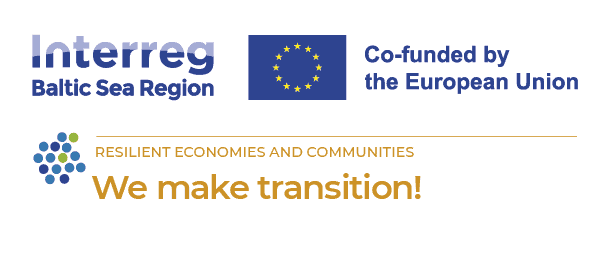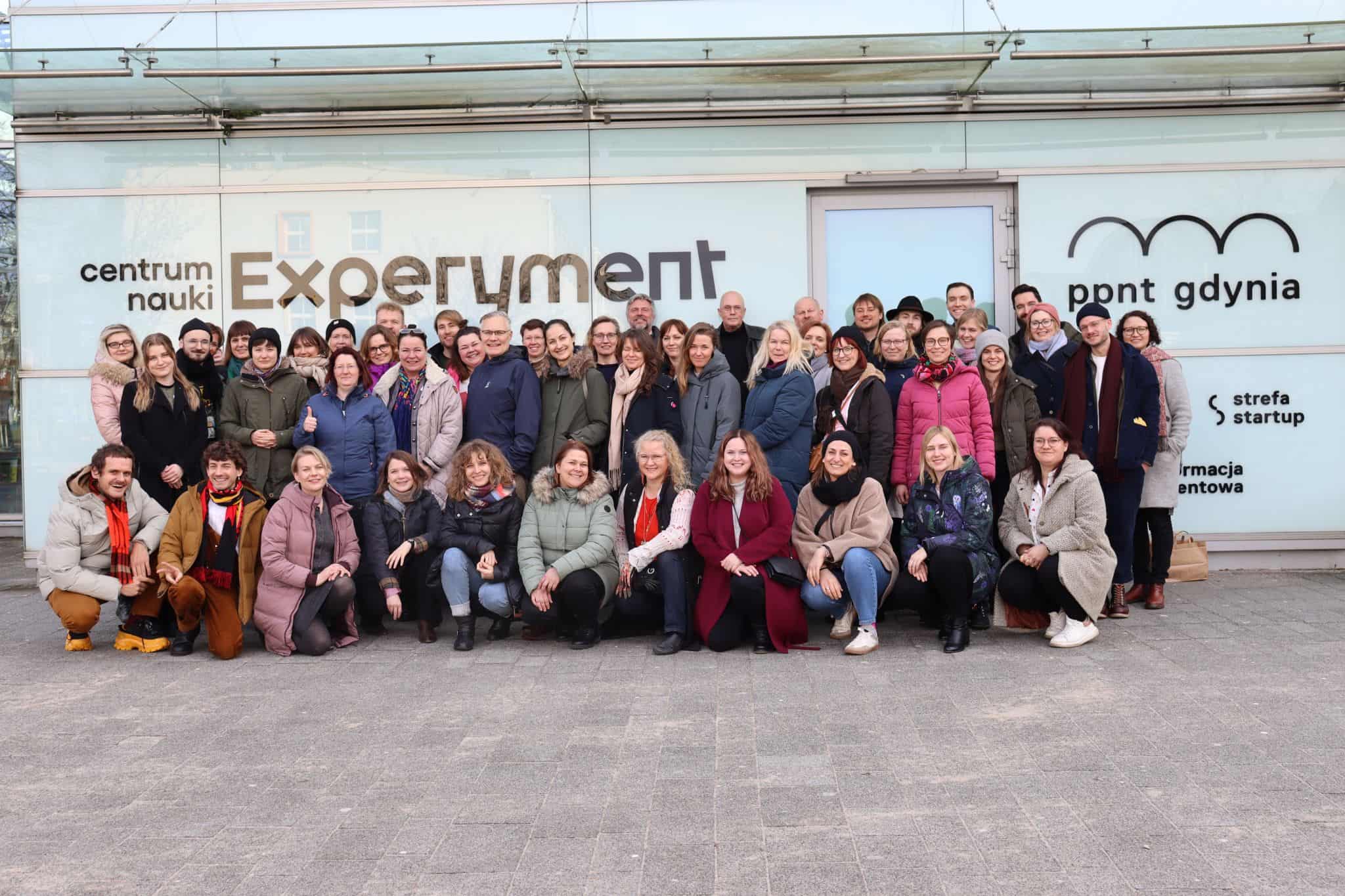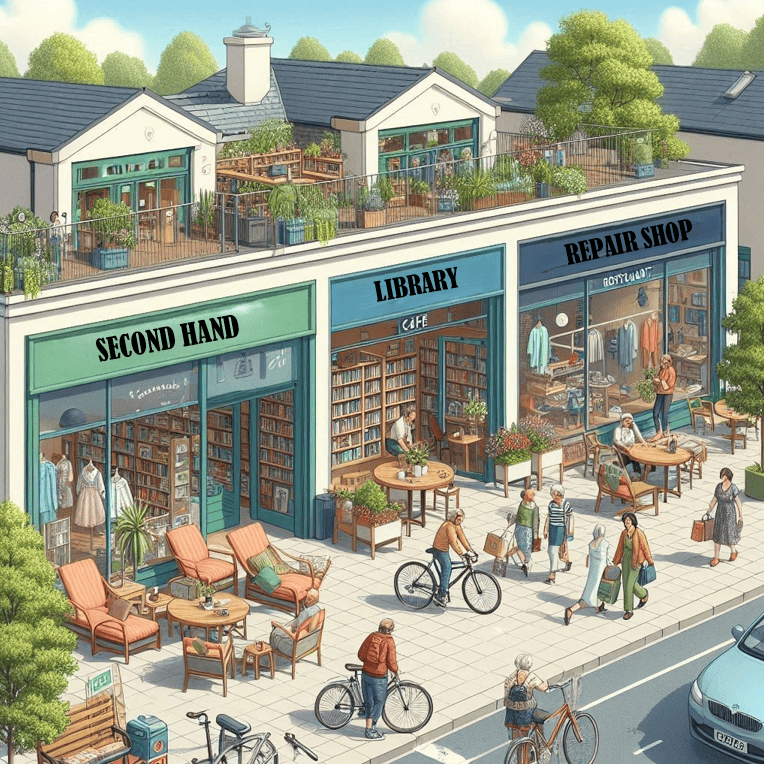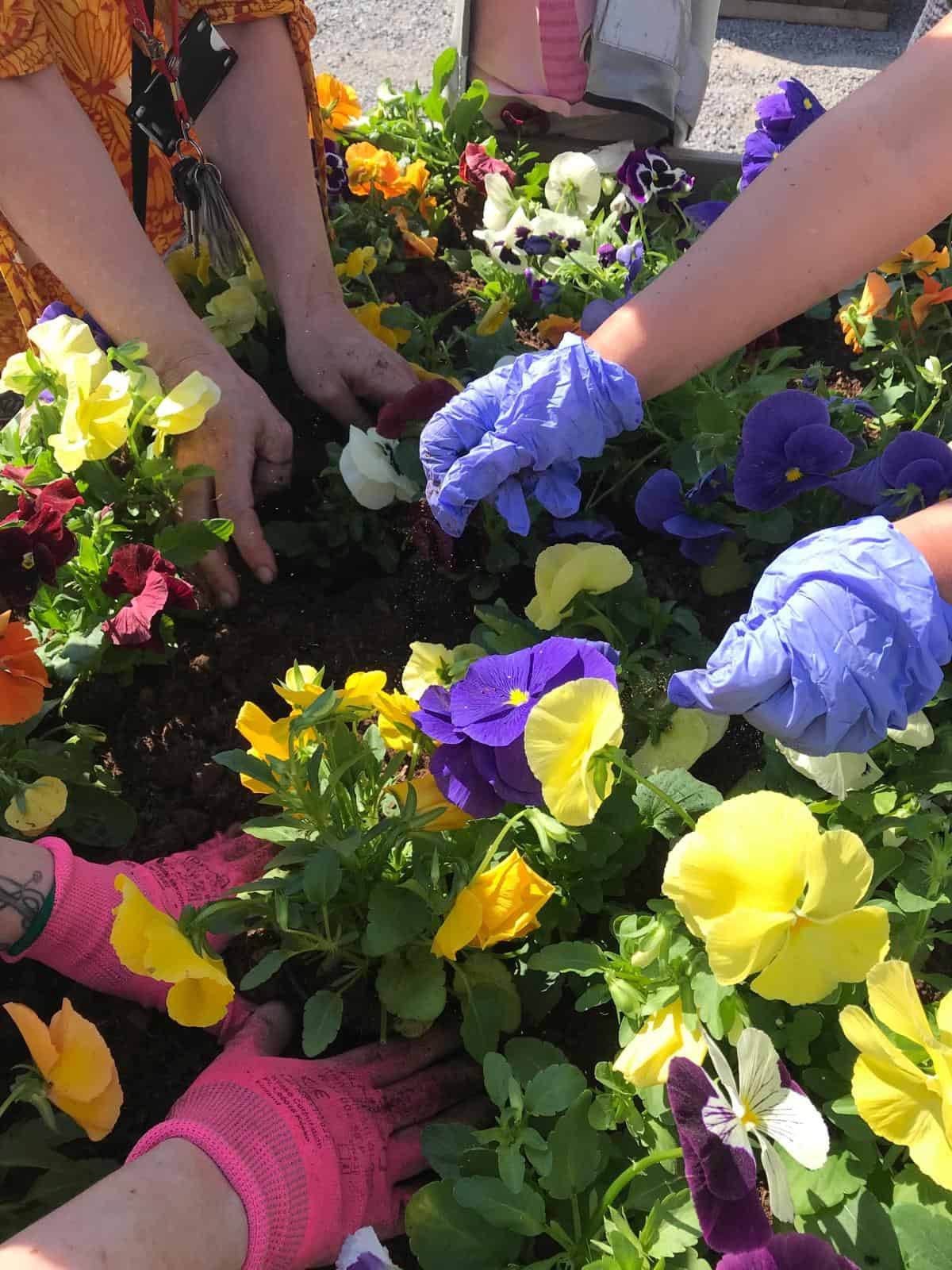
Baltic Sea region vision of sustainable life and recommendations to foster cooperation between local authorities and civil society actors
24 June 2024
Transnational group of change agents identified key challenges they would like to see solved in the desired sustainable future, for example:
- How to mainstream re-using, sharing, repairing and caring instead of a life based on consumption and individualism?
- How to make sustainable choices more accessible to make in everyday life?
- How to integrate more manual skills development into our education system?
- How can small-scale local food production be promoted over big retail chains and corporations?
How does a future vision look like where sustainable lifestyle is enabled through public-private-people collaboration and changes in education, regulations and city planning?
“People are aware where food and things come from, reliable information about the impact of individual choices is easily found.”
“A mindset oriented towards sharing and repairing is the norm. Paid work is meaningful and voluntary work is valued.”
“Food is based on local production. Eating is quality time with family and other community members.”
In the desired sustainable future, consumption is geared towards meeting people’s basic needs. People’s mindsets have changed to prefer reusing over buying new products. The overall amount of waste has decreased due to decreased consumption and production. Popularity of sharing, swapping and renting rise over private ownership. There are circular shopping centres that include a variety of high-quality secondhand items as well as repair services, meeting points, cafes and spaces for workshops.
Manual skills and community building are strongly integrated as basic skill development in the educational system and lifelong learning. Sustainable and reliable ways to produce and distribute food rely on more diverse, decentralized and flexible solutions. Solutions like community agriculture, food collectives, co-ops & associations are popular.
Value is not only counted in money, but also in time, collaboration and sharing. The timebank model is used, which means that one hour of sharing your skills or helping others (for example gardening or taking somebody to walk) earns you one time-credit, whatever the skill or task.
Download the Baltic Sea Region vision of sustainable life here: BSR vision of sustainable life.pdf
Recommendations for local authorities and decision-makers
In addition to co-creating the joint vision, change agents came up with recommendations for local authorities:
Firstly, financial and other forms of support are needed to enhance transformative ideas and initiatives of civil society actors. Often a small seed money can enable significant societal impact. Support should be easy to access for example in the form of public-people partnerships, small seed money and participatory budgeting prioritising ecological and social sustainability. Other forms of support include providing free or low-cost spaces for e.g. community building and sharing activities as well as legal advice, tax reductions and sparring to bring ideas to life.
Secondly, regulatory changes are needed to enhance the efficient use of already existing buildings and enable the rise of circular, sharing and repairing economy. Circular, local, and organic should be prioritised in the public procurement.
Thirdly, local decision-makers should have a transparent decision-making process to allow also civil society actors provide their knowledge, suggestions, and views to decisions. It is important to communicate in a way everyone can understand. Decisions should be based on scientifically proven data and reliable measuring of the long-term impact to nature.









